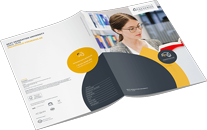Also interesting ...
- Distance learning program
- Master of Arts (M.A.)
- 2 Semester
- online
- German or English
- Management in a Globalised World, Research Methodology, Intercultural Management, Strategic Management, Leadership, Business Ethics and Corporate Governance, Seminar: Current Topics in International M…
The Master's programme in International Management lasts 2-4 semesters in full-time study or 4-8 semesters in part-time study, depending on the requirements. You will deal with topics such as intercultural management and deepen your knowledge of strategic marketing and branding or project management.
- On-campus program
- Master of Science (M.Sc.)
- 4 Semester
- Cologne, Berlin
- English
- International & Global Management, Corporate Strategy, Leadership & Management, Advanced Project Management, German I: Living in Germany or Intercultural Communication & Competence, Research Methodolo…
The Master's programme "International Business Management" at Fresenius University of Applied Sciences provides practice-oriented skills and knowledge in the field of global business strategies and international corporate management.

 DE
DE  This provider offers free info materials to download or send. Would you like to be redirected to the provider's website? There you will find much more information about the course.
This provider offers free info materials to download or send. Would you like to be redirected to the provider's website? There you will find much more information about the course.
Advisory Service
Have questions about Academic Programs Master in International Business? Ask your question here, even anonymously. An employee of the institution WHU Otto Beisheim School of Management or the editorial team will answer you.
or post as a guest